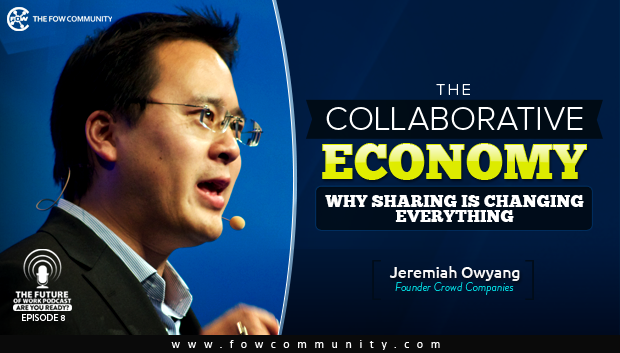Click Here to Subscribe via iTunes
Click Here to Subscribe via RSS Feed (non-iTunes feed)
The one stat you need to know
Forbes estimates “The revenue flowing through the share economy directly into people’s wallets will surpass $3.5 billion this year, with growth exceeding 25%. At that rate, peer-to-peer sharing is moving from an income boost in a stagnant wage market into a disruptive economic force.” – Forbes Jan 2013
What this episode is about and why you should care
The collaborative economy is an economic system based on people sharing their resources including goods to services. The system takes advantage of information technology that enables the sharing of products and services rather than individual ownership. For example instead of buying a car you can user Uber or Lyft to get around. Instead of going to a box retailer to get something you an go to Etsy and get something directly from individuals. Need a wedding dress? No problem you can get that at Rent the Runway. What about a place to stay? No need to go to a hotel when consumers just like you and me are offering up their own places for people to stay in via Air BnB. The collaborative economy is allowing individuals to connect with each other while bypassing the traditional businesses. Clearly this is a major disruption that is impacting the economy, organizations, and individuals as well. For us to fully understand what the collaborative economy is, I talked to Jeremiah Owyang from Crowd Companies.
What you will learn in this episode
- The definition of the collaborative economy.
- The Importance of the collaborative economy and why it is so distruptive.
- What’s going to happen when robots come into play in the collaborative economy
- Is the collaborative economy a short term fad that’s eventually going to be replaced? Or is this going to be a long term sustainable thing that’s going to be impacting the world?
- Examples of companies in the collaborative economy.
- How different generations are taking advantage of the collaborative economy.
- What are the driving forces behind the collaborative economy?
- The impacts of the collaborative economy on businesses.
- The first companies or leading organizations that started the collaborative economy movement.
- Is renting the same as the collaborative economy? What’s the distinction between the two?
- The impact of collaborative economy on the government – impacts on safety, security, liability, regulation, and taxation.
- What are the negative effects or problems that may arise as a result of the collaborative economy?
- What is the future of the collaborative economy?
Links from the episode:

